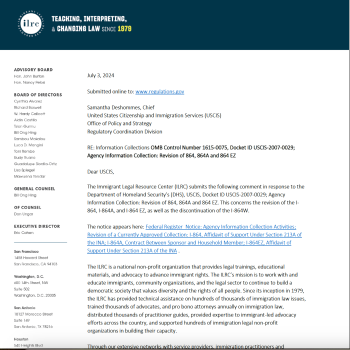Term Page
Public Charge
Your green card is proof of your status. If you lose it or it expires, you are still a permanent resident. Permanent Residence is a status—only an immigration judge can take away your permanent residence. Permanent residents should carry their green card (or at a minimum a copy of it).
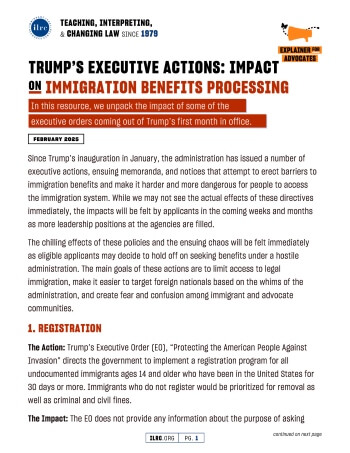
In its first month, the Trump administration has issued dozens of executive orders (EO) that seek to limit access to the immigration system, target foreign nationals for political gain and sow chaos and fear among immigrant and advocate communities. This explainer focuses on aspects of the EOs that target immigration benefits, processing and adjudication.
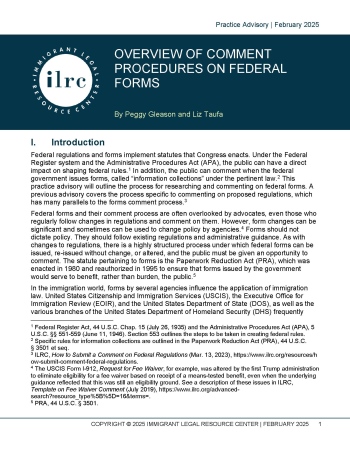
This practice advisory outlines the process for researching and commenting on federal forms. A previous advisory covers the process specific to commenting on regulations, which has many parallels to the forms comment process. Federal forms and their comment process are often overlooked by advocates, even those who regularly follow changes in regulations and comment on them. However, form changes can be significant and sometimes can be used to change policy by agencies. The statute regulating forms is the Paperwork Reduction Act (PRA).
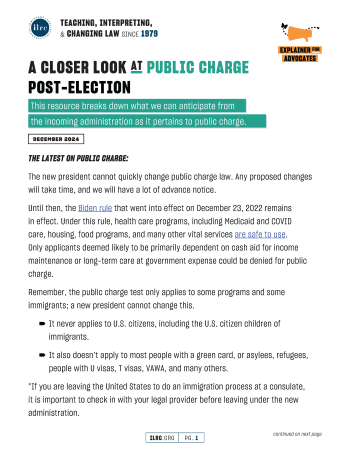
Given the previous Trump administration’s use of public charge as a means to limit access to immigration benefits, many may be facing renewed anxiety about public charge. This resource aims to provide advocates and community members with an understanding of what public charge changes are—and are not—possible under a second Trump administration, including timing of any possible changes and recommendations for community members.
This Community Explainer details what Public Charge is, who it does and does not impact, and what immigrants should know when considering certain public benefits and their family’s immigration circumstances.
This Community Alert provides an overview of new eligibility changes for full-scope Medi-Cal for income-eligible Californians, regardless of immigration status. Available for download in English and Spanish.
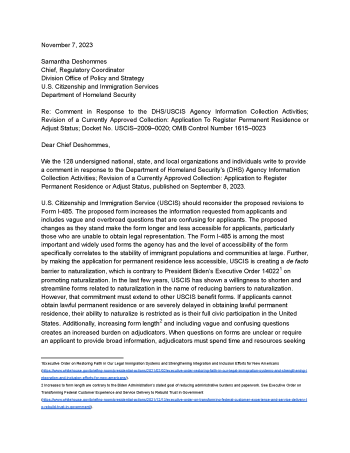
ILRC led a sign-on effort to provide comment to USCIS on the proposed changes to Form I-485, Application to Register Permanent Residence or Adjust Status. The comment, submitted November 7, 2023, received over 120 signatures and requested that the agency revise the form for efficiency and to remove barriers to eligible applicants.
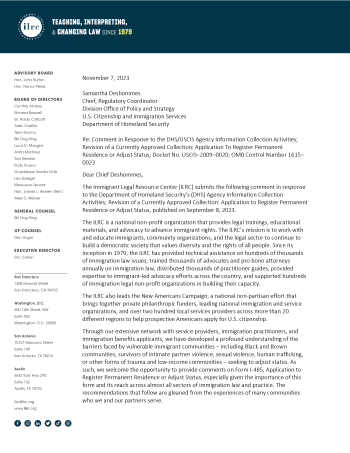
On November 7, 2023, the ILRC submitted this comment on USCIS’s proposed changes to Form I-485, Application to Register Permanent Residence or Adjust Status. The comment provides detailed suggestions for alterations to the proposed form as well as suggested language the agency should include. ILRC urged the agency to revise the form to reduce barriers to permanent residence for applicants and adjudicators and to focus on ensuring that the form is accessible for pro se applicants.
Public Charge and Immigration Law
Public Charge
While public charge has been a part of our immigration laws for more than a hundred years, changes including actions taken by the Trump and Biden administrations brought renewed attention to public charge law. The Trump-era changes to public charge...
